Note: This post may contain affiliate links which means if you click on a link and purchase an item, we will receive an affiliate commission at no extra cost to you.
This post is brought to you by a few books Loren recommends: 4 Hour Work Week, Tools Of Titans, and How To Win Friends & Influence People.
This is the latest interview in a series featuring digital nomads talking about their lives and lessons (click here if you want to be interviewed). The goal is to help demystify the process of making money online, wandering the world, and living an unconventional life!
Loren transitioned his career into a remote business two years ago, but his life took him abroad years before that. We love his honest take on how nomading has changed his life and his future goals of earning more without adding hours to his workweek.
Thank you for sharing your story with Freedom Is Everything, Loren!
Key takeaways from Loren’s interview:
“I realized that my biggest fear in life is knowing exactly what the future holds, what house I will live in, what job I will have, etc. That type of lifestyle feels like driving on a long, straight road with the horizon of your existence looming in front of you the entire time. So my personality is partial to digital nomading because I can choose where I go, and I don’t know where I’ll be in a couple of months, what I’ll experience, etc.”
“When I am working at a café or at a spot that has a great vibe/scenery, I take some time to take it in. To really appreciate that I’m not working in an office and that I’m in this beautiful, exotic place, living a life that I only dreamed about just two years ago.”
“It can be a lonely existence, and for me, I’ve found that the relationships I have back home aren’t as close as they’d be if I were back home all the time. For me, I just accept this; it’s part of the process – you can’t have the freedom we have without giving up some security and comfort. So I work to accept it and try not to dwell on it. Instead, dwell on the positives.”
“Having a good relationship and trust with your clients will make things much smoother when things inevitably go wrong. The inverse is true if the relationship isn’t good, then even small problems become huge.”
Table of Contents
Introduce yourself! 🙂 Who are you? What do you do for work? And what is your nomadic story?
I was born and raised in the mountains of Colorado, in the middle of the United States. I am writing this from the Amsterdam airport. I am (unfortunately) returning home from a month in Greece and Turkey.
While I travel 3 – 5 months of the year, Denver, Colorado, is my home base, so I think I’m what you call a slowmad, where I have a home base but travel out from there.
I taught English for a year in Vietnam, which taught me that I really prefer to have my home base in Denver and travel from there. I have friends and family there, and it’s a pretty chill city. Not as exciting as many other American cities, but it suits me well.
I have only been digital nomading for two years, but before that, I’ve been fortunate enough to live in Paris, France, for about three months, and I lived in Vietnam for a year teaching English. As mentioned, nowadays, I really prefer having the home base of close friends and family in Denver and taking trips for 3 – 6 weeks at a time. I work remotely for my digital marketing company, Loren Ross Marketing Consulting.
What inspired you to start nomading? And how has nomading changed your perspective on life?
I’ll answer this with a story. When I was 22 years old, I didn’t have much money to travel abroad, so I hitch-hiked a lot around the US. One night I went out drinking in Denver, Colorado, with my buddy Chaz and after a few too many margaritas, I ran into a group of girls around my age from Seattle. They were returning to Seattle that night, and I decided to get in the car with them and go to Seattle with nothing more than the clothes I had on my back, my wallet, and my phone.
At one point in the drive, late at night, we pulled over and drove up into some mountains and laid on the ground staring up at the stars and talked about life. Eventually, we got to talking about our biggest fears. When it came to me, I had to think a bit, but I realized that my biggest fear in life is knowing exactly what the future holds, what house I will live in, what job I will have, etc. That type of lifestyle feels like driving on a long, straight road with the horizon of your existence looming in front of you the entire time.
So my personality is partial to digital nomading because I can choose where I go, and I don’t know where I’ll be in a couple of months, what I’ll experience, etc.
As of now, I love Denver, but I love having the ability to change my home/situation at a moment’s notice while still building a career and making money.
Nomading has increased the quality of my life extensively, particularly having my own business. Just two days ago, I worked for a couple of hours in the morning, then spent the middle of a weekday hanging out on a beach and drinking mojitos with a bunch of awesome Ukrainian people I had met that day.
The biggest thing I’ve learned from nomading specifically is – if you think you deserve an awesome lifestyle, then you will have one. If you don’t think you deserve to have an awesome lifestyle, then you won’t.
Please tell us the detailed story of how you started your business.
I was fortunate enough to work at digital marketing firms for a couple of years, and after that, I started my business in digital marketing. I specialize in SEO, digital advertising, and data/analytics. The day I decided to start thinking about really working for myself was a Friday. I remember because I was wearing a Hawaiian shirt, and my manager came up to me and said that if I wanted to keep my job, I shouldn’t wear that shirt again. I worked in account management and had client calls and such, so I totally got it.
Nonetheless, I was tired of playing by other people’s rules, so I started thinking about working for myself. From there, I realized that I could do Uber and make enough money to get by while I built up my business, and that was it! I already had a good base of knowledge for the work and a decent network, both of which were huge for starting my business.
For me, I really couldn’t work for another boss again. It doesn’t suit my personality, so this is what I was meant to do. In the beginning, I had to be very careful about which thoughts I entertained as it’s easy to feel like a poser. When people ask what you do, and you say that you have a digital marketing firm, but in reality, you only have one client, and most of your money comes from Uber, that can eat away at you, so keeping my thoughts on the right track was a huge part of starting the business.
The biggest piece of advice that I give people trying to get into digital marketing is that you need to view your job search like a marketing campaign because that is what it is, and your resume is like an advertisement. So if you can’t market yourself, then you really should work on that first. Then when you get good at that, you’ll be able to transition those skills into getting a job.
What are the 2-3 favorite places where you’ve lived/traveled to and why?
France is my favorite for sure. When asked this question, I always say France. I was fortunate enough to meet a girl who lived in Paris, and we dated for a while, so I stayed with her for the summer back in 2013, I believe. I was close enough to ride a bicycle to the Eiffel Tower. It was incredible. I really loved drinking wine and eating bread and cheese along the Seine.
We also spent a couple of weeks driving around France. We slept in a tent for most of this, we would covertly set up a tent in this rolling hills of vineyards, and you’d wake up, unzip the tent, and be greeted by long rolling lush hills of vineyards.
We visited Rocamadour and these other small towns that are built on the side of cliffs. We were on the beautiful Cote D’azure one day and into the Alps and Mont Blanc the next. The complexity and depth of the cultures & landscape in France are incredibly interesting. It’s not as deep as that of India or China, but I was in love with it, and I still am.
At the moment, I would say my #2 was this trip that I’m ending right now, where I spent a month in Greece and Turkey. The reason why it’s my favorite is because of the emotional & sort of spiritual learnings I’ve had on this trip.
I actually began the trip by riding a bicycle from Athens to Istanbul, which took about 16 days. After that, I spent about a week in Istanbul, then Santorini for four days, and finally back in Athens for a couple of days.
The first day I rode my bicycle, I was trying to knock out way too many kilometers in the scorching sun, and I likely ended up getting heatstroke. Anytime I inhaled, I felt very nauseous. I was super lightheaded. I couldn’t even ride my bike the last two miles because it was too hard for my body to manage. I had to walk my bike, and I must’ve stopped four or five times to sit underneath the shade and try to recuperate/take naps because my body just felt like it was shutting down.
That day was intense, and honestly, there was a thought at one point that I was going to die out there in the countryside. In the end, these thoughts came racing in my head about who I am, and about what a hypocrite I am, how overly competitive I am, etc. It was like a bad drug trip. I nearly cried from these thoughts, but fortunately, I was able to keep my mind together because if I had given in to those thoughts, I would’ve ended up passing out on the ground out there physically and mentally broken.
This day taught me a lot, the most important of which is how much my hyper-competitiveness hurts me and how often this hyper-competitive program runs in my mind. Ever since I was a kid, I always wanted to be better than other people at the things I did, I didn’t care much about winning video games or stuff like that, but sports or other competitions – I was all about it.
In the last couple of years, I would come up with these mental acrobatics to feel superior to every other person I met – whether I was in better physical shape, drove a better car, made more money, or lived a better lifestyle, etc. Now I don’t want to do this anymore. That day was intense enough for me to recognize this program, a program I had run most of my life and never really noticed before.
In addition to this, I also have been much more emotionally raw this trip. When you’re riding a bicycle by yourself on the side of a road for hours on end, you inevitably are much more vulnerable. You don’t have the doors and windows of a car to shelter you from your surroundings, and you don’t have the protection of a giant metal car.
Your days are much longer. What would take a car a couple of hours took me an entire day. It forces you to be more humble and more in touch with the world around you. I’ve felt emotions on this trip deeper than any emotions I have felt in years. I would be riding on the side of the road and be nearly brought to tears by the love and appreciation I have of my friends and family.
The interesting part is this emotional vulnerability continued even after the bike ride was over. I really invested my emotions and my humanity in the relationships I built with near strangers. For years now, I have subconsciously viewed emotions of empathy and sadness as hindrances to my productivity. If I’m sad or too compassionate all the time, it’s more difficult for me to focus on building my business, or giving it the most in the gym, etc.
I recognize how I can start managing my competitiveness, but I don’t know how to integrate this emotional intensity into my life yet. That being said, I know what I’ve experienced this trip will never leave me the same.
What advice would you give to someone who’s thinking about nomading?
On meeting people
Staying in hostels is going to be huge for meeting people. Hostels tend to have poorer wifi, but you can find some with a great community and great wifi. I actually wrote a guide about how to find fast wifi anywhere in the world if you want to check it out. Honestly, I really think hostels are the best way to go to build community. Part of me does feel a bit ashamed about this because I’m not spending lots of time with people who aren’t even from the country I’m in, but nonetheless, it’s probably one of my favorite ways.
Another one is learning the language. Even if it’s just a little bit, it’s incredible how many friends I made this last trip by giving a simple (poorly pronounced) greeting in Turkish or Greek. For many people, seeing that you’re trying to speak the language gets them super excited and proves that you’re genuinely interested in their culture.
On fears/anxieties
Getting fast wifi: I have developed a pretty good process to still get good wifi anywhere. See the link in my response above for the full process.
Losing clients: I really worried that I wouldn’t be able to get enough work done or that clients wouldn’t be able to get a hold of me and get angry and leave, but I really haven’t had any issues. I use Google Fi, which has data, messaging, and calling in over 130 countries, so I haven’t had any communication problems, and as far as working goes, you just have to be disciplined about sitting down and getting the work done.
For me, I can’t really screw around for too many days in a row without feeling guilty, so inevitably I never get too far behind. You could try to build a regimen about when you work, chunking a couple of hours in the morning then leaving the rest of the day for whatever else.
My schedule tends to change quite a bit from week to week or even day to day when I’m traveling, so you have to be flexible and get rid of any all or nothing attitudes because that will ruin you, in my opinion.
General tips & insights
It can be a lonely existence, and for me, I’ve found that the relationships I have back home aren’t as close as they’d be if I were back home all the time. For me, I just accept this; it’s part of the process – you can’t have the freedom we have without giving up some security and comfort. So I work to accept it and try not to dwell on it. Instead, dwell on the positives.
Along that line, one thing that I try to do often is take a couple of minutes to fully grasp your surroundings and situations and feel appreciation for it. For us, we can literally work on a beach drinking a pina colada. Or be in the middle of the Andes next to incredible mountains working, while others are sitting in offices dreaming about their two-week vacation next year.
Obviously, those office workers are the luckier people in the world even. There are many more struggling to cover basic expenses. So when I am working at a café or at a spot that has a great vibe/scenery, I take some time to take it in. To really appreciate that I’m not working in an office and that I’m in this beautiful, exotic place, living a life that I only dreamed about just two years ago.
What is unique about the way you travel, and what advice do you have for someone that wants to travel with a similar style?
I’m a white American man, so I obviously can’t speak to any other groups. However, I do love language learning, and that’s a unique way in which I travel. I would say 60 – 80% of my trips I’m going to a country that speaks a language I want to learn fluently. I’m currently working (very slowly) on becoming fluent in Spanish, French, and Mandarin Chinese.
For anyone interested in learning foreign languages, going to the country is a great way to learn. That being said, you do have to embrace the uncomfortability. If you can’t do that, then you’ll learn just enough to get by and then plateau.
Here’s a short story about embracing the uncomfortability – I remember when I first got to Vietnam, I had already studied Vietnamese for eight months. I was coming in super confident – I had this big head because, in the beginning, I didn’t know any foreigner who knew the amount of vocabulary that I did.
I went to a restaurant and met some Vietnamese guys, they were super friendly they introduced me to all this food and bought me a bunch of beer, the only issue was that I couldn’t understand a word they were saying, and they could maybe understand 10 – 20% of the “Vietnamese” that I was speaking. I felt like a complete child. They had to say one word at a time and use a lot of gestures. It felt embarrassing. After that, I realized that if I wanted to learn the language, I would have to get used to that, to feeling like a child, and now I embrace looking like an idiot.
Last night I was hanging out with two really cool French guys, and we were talking about French cuisine, more specifically the cuisine in the Southwest of France. I always mix up two words in French, Duck canard and another, not-so-nice word connard (if you don’t speak French, you’ll have to Google Translate it yourself, haha). I kept saying the bad word when I meant to say duck, and everyone would laugh, and now I just laugh along with them. There’s no getting around it. You’re going to look ridiculous. Just embrace it.
Since launching, what has been most effective to acquire/retain customers and scale your business?
Building a real relationship with them – having a good relationship and trust with your clients will make things much smoother when things inevitably go wrong. The inverse is true if the relationship isn’t good, then even small problems become huge.
I do this a couple of ways. Every place I go, I always get a gift for my clients, something they couldn’t get in America that I know they’ll like.
I also only work with people I get along with, making the relationship part even easier.
What digital tools do you use for your work/business?
I’m in Trello, SEMRush, Google Analytics & Google Search Console pretty much every day – they’re all pretty amazing. I know that Trello has fallen a bit out of style, but I still like it because it’s super customizable.
What scale is your business at today, and what are your future goals?
Currently, I make six figures from my business. I would like to increase this to about $150,000+ without getting too many more clients, but by having higher retainers.
For someone interested in becoming an entrepreneur in your field, what’s the best advice you would give? And what books, podcasts, thought leaders, or other learning resources do you recommend?
Anything by Tim Ferriss is always good: 4 Hour Work Week, Tools Of Titans, his podcast, etc. I also really like The Sales Bible. The Way of the Wolf by Jordan Belfort. How To Win Friends & Influence People is the only book I’ve ever read twice. That’s how good it is.
For SEO/digital ads specific resources Moz is really good. Search Engine Journal, Rusty Brick does a great weekly update on Google news. Wordstream.com is also great for digital advertising resources in general.
If you only had a few minutes to live, what are the most important life lessons you would share with the world?
Most people who talk the most about how great their lives are/how much money they make are full of it, and I wouldn’t listen to them.
What do you travel with that you couldn’t imagine traveling without?
- Solis Hotspots – these things are pretty killer.
- I also couldn’t do it without Google Fi, the mobile service from Google that gives me unlimited data (well, throttled at 22 gbs/month) unlimited text and calls in 130+ countries. I’m using this service with an Android, so I also get international hotspots.
- Nperf.com – for testing internet speeds
- An electronics bag to house chargers, adapters, an ethernet cord, etc.
- Wipeys Travel Wipes – while these aren’t really made for men per se, I love these things while I’m traveling. There are a couple of different types for computers, your face, etc., and they’re all-natural and smell great.
How can people learn more about you and your work?
Here’s my digital marketing businesses website – https://lrossmarketingconsulting.com/
I also recently started a new business, which is a travel blog for existing and aspiring digital nomads, Digital Nomad Lifestyle LLC.
-
- Here’s a link to the Facebook group – https://www.facebook.com/groups/327920982044468
- Here’s a link to the Instagram – https://www.instagram.com/officialdigitalnomadlifestyle/
- Here’s a link to the website – https://digitalnomadlifestyle.com/
- Here’s a link to the YouTube account – https://www.youtube.com/channel/UC9NwtgGAFJf8246oF4KOXxQ


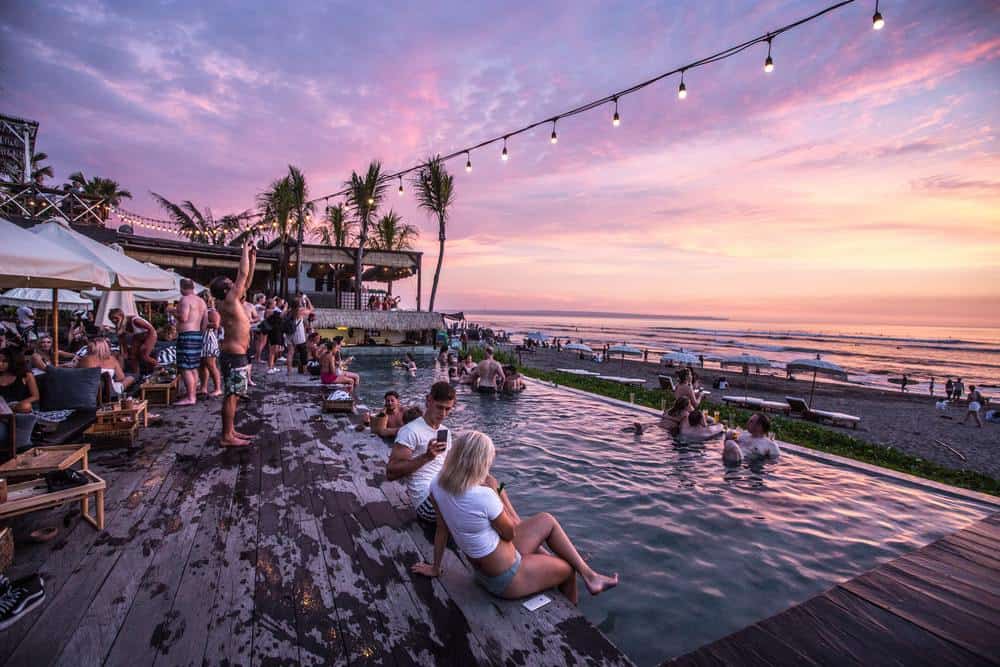
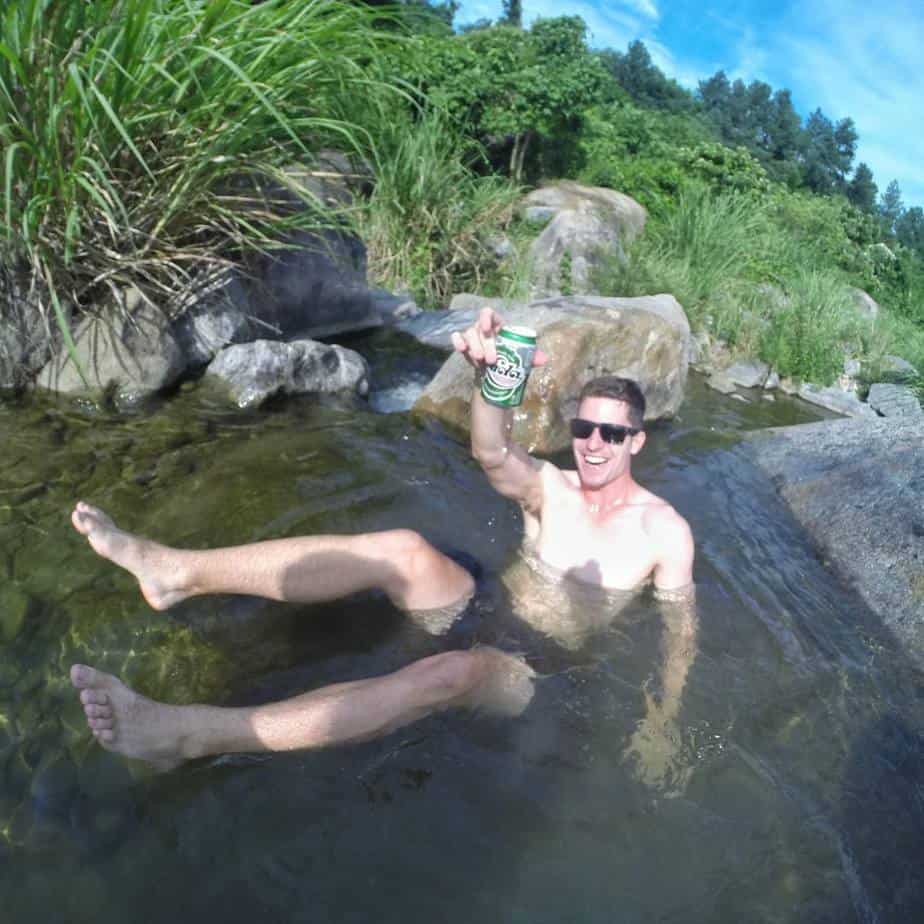
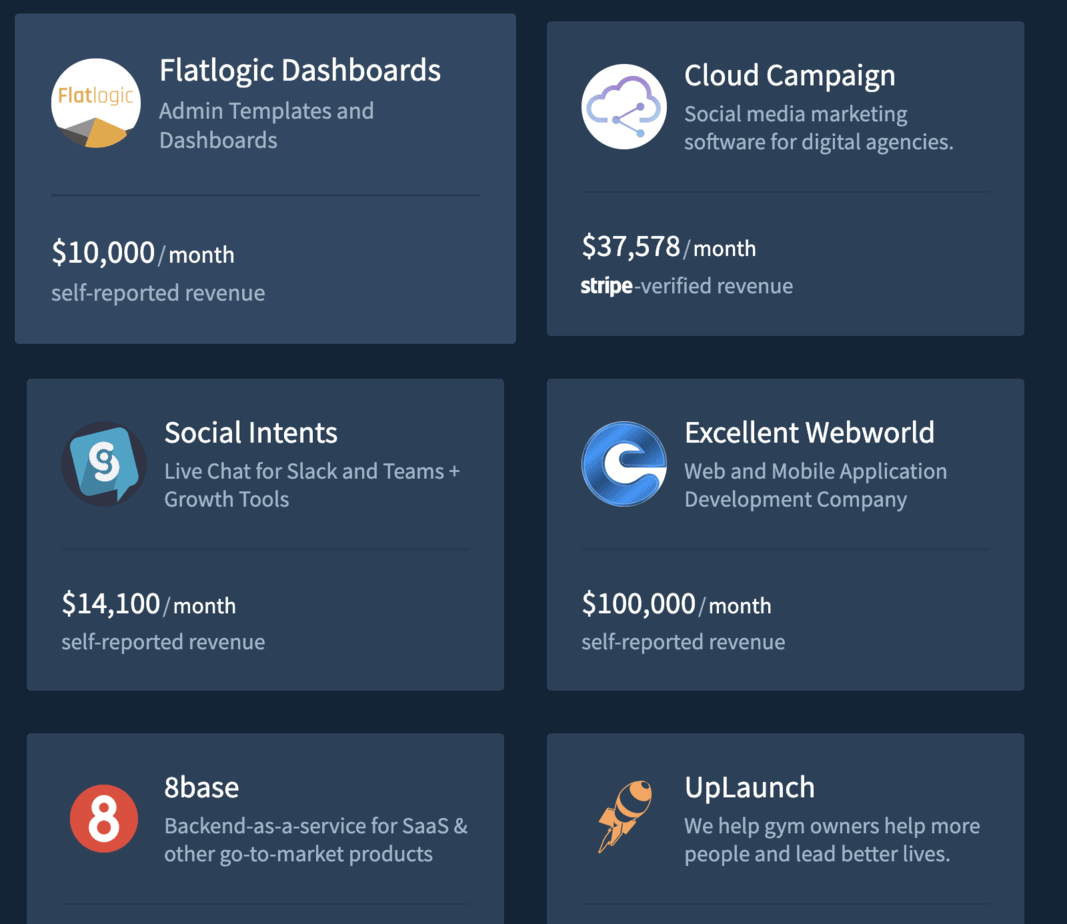
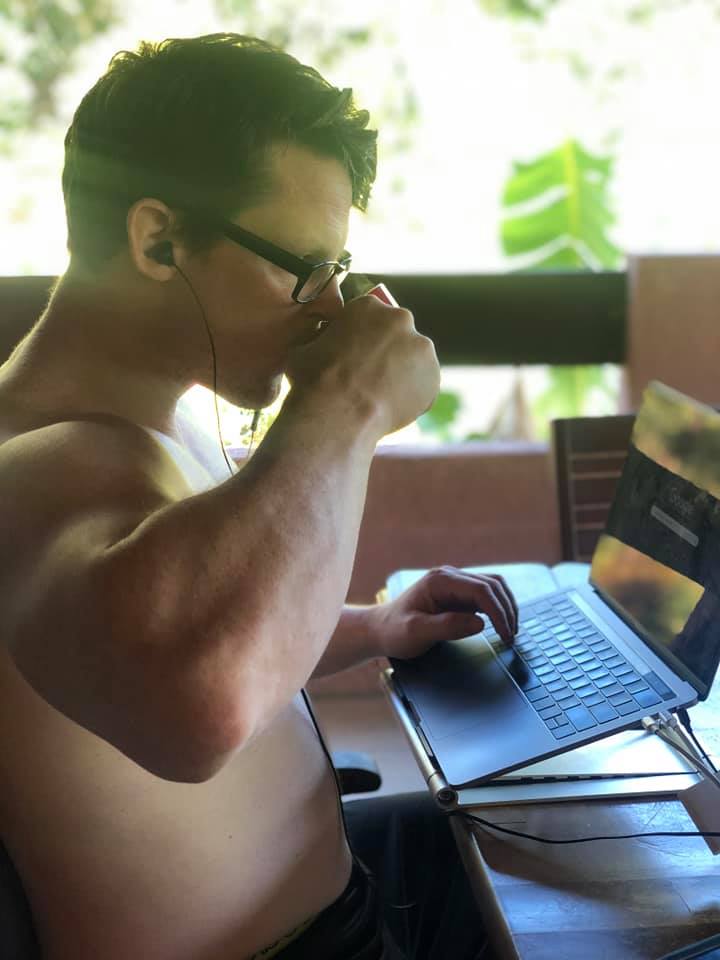
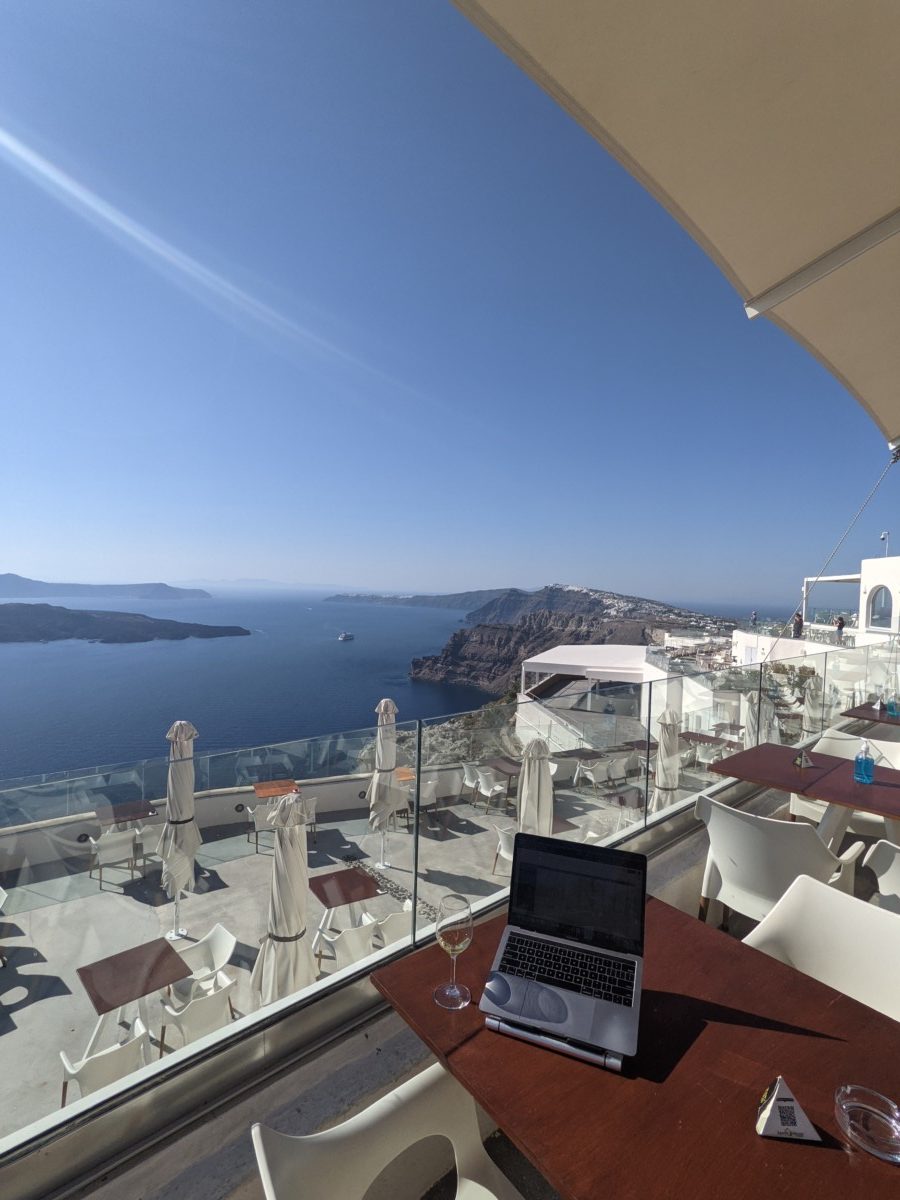

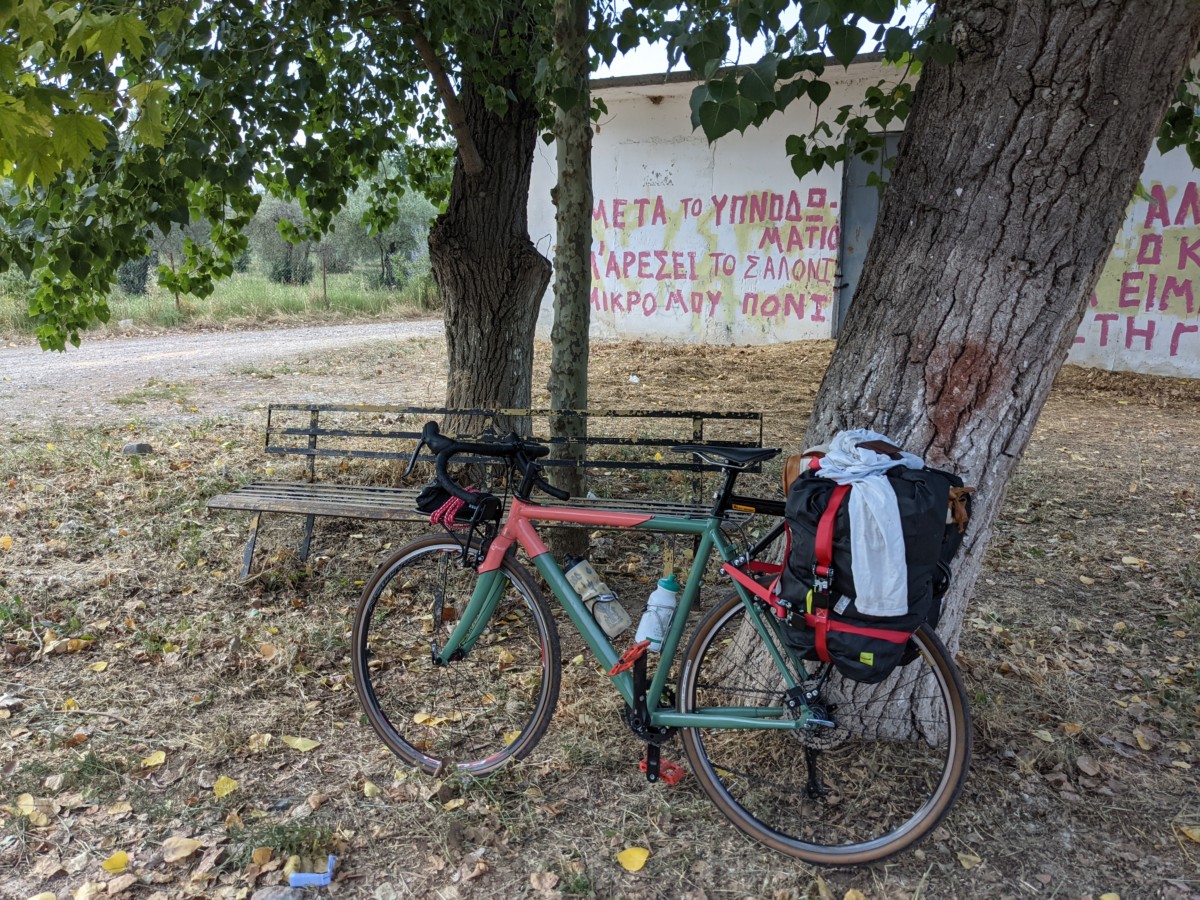
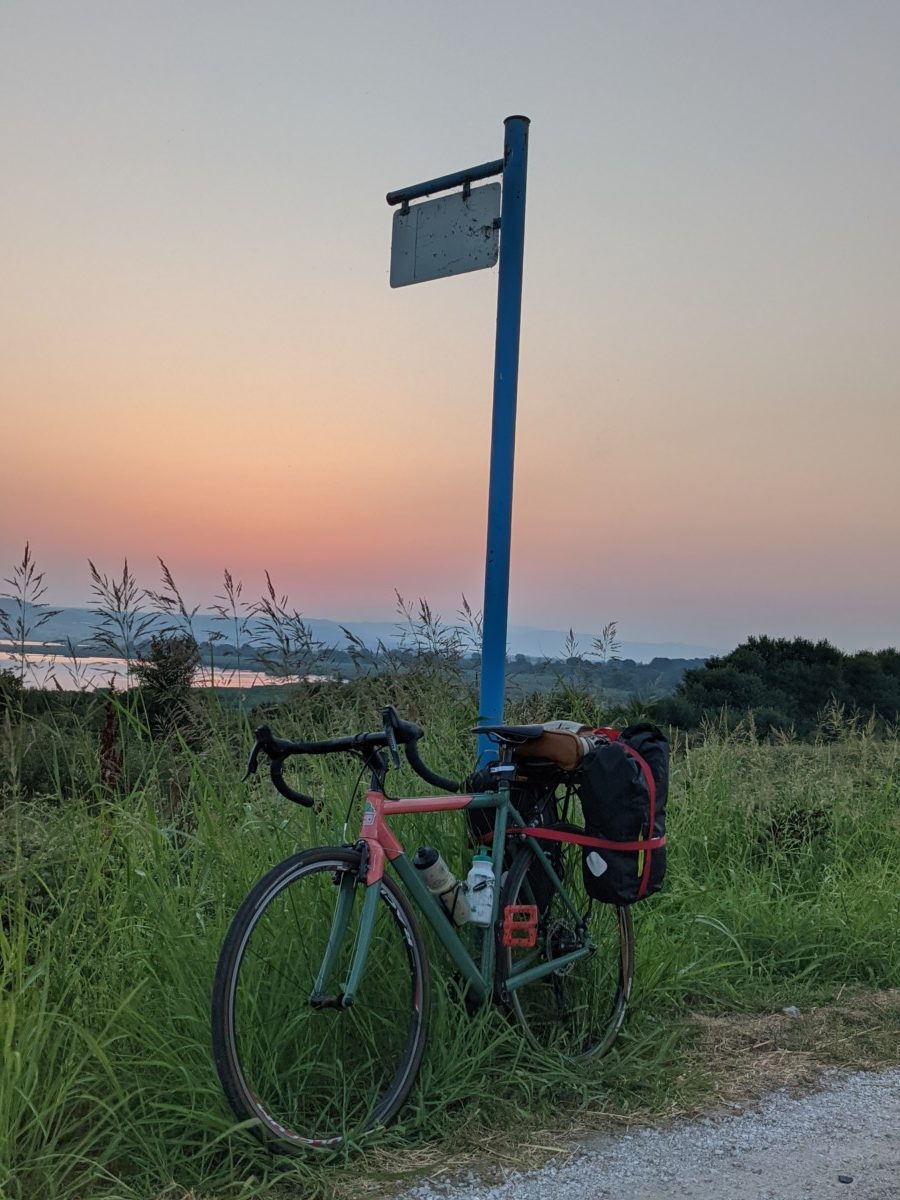
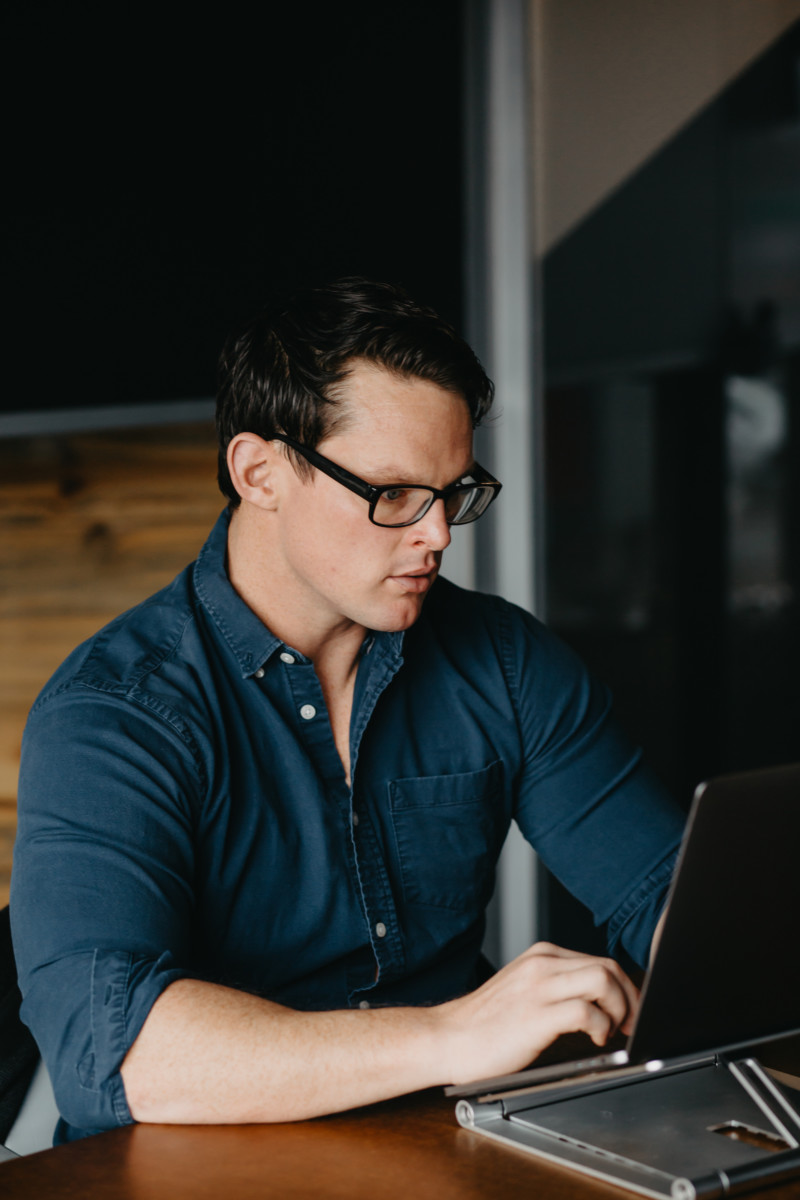
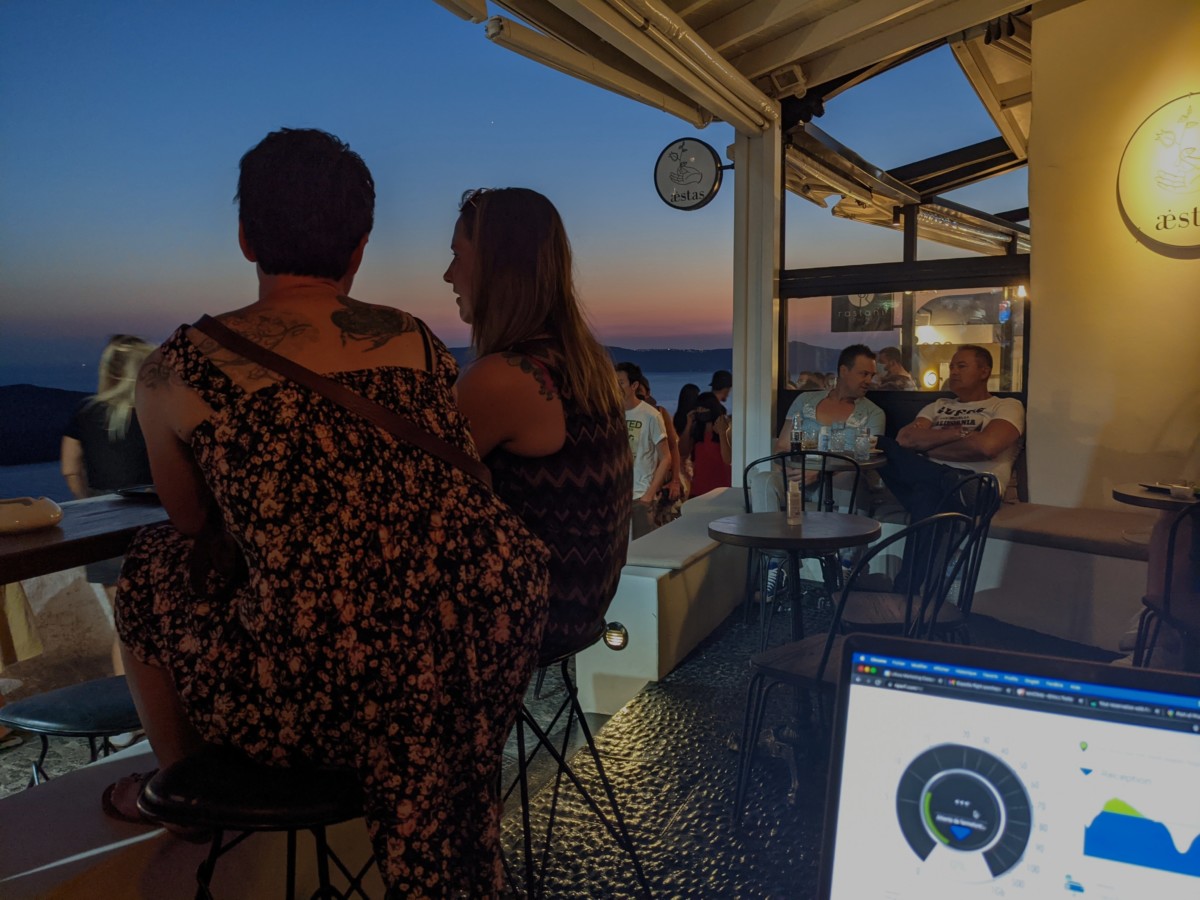
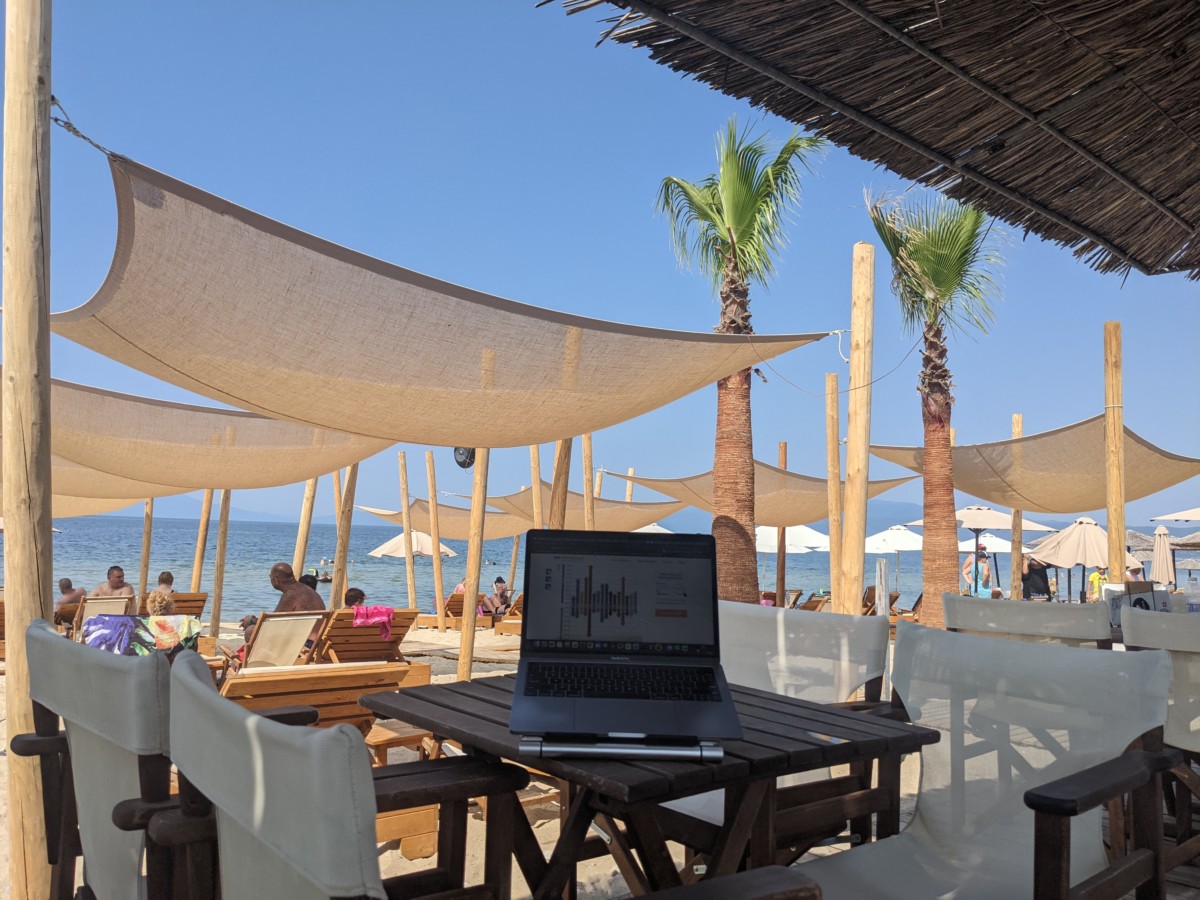
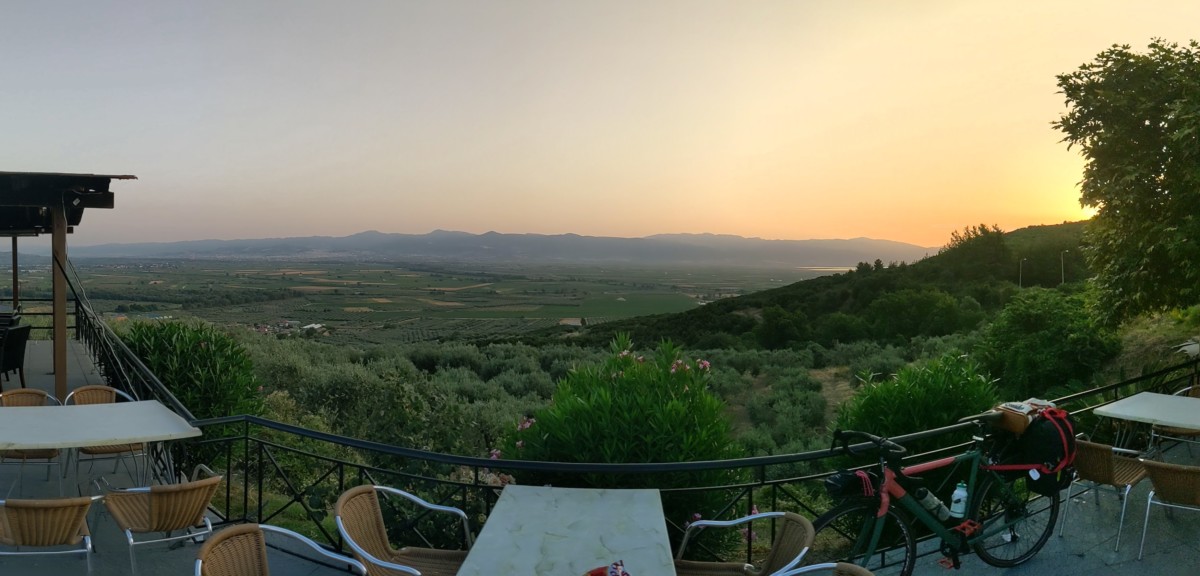
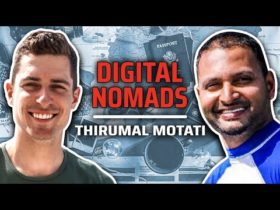



Leave a Reply
View Comments